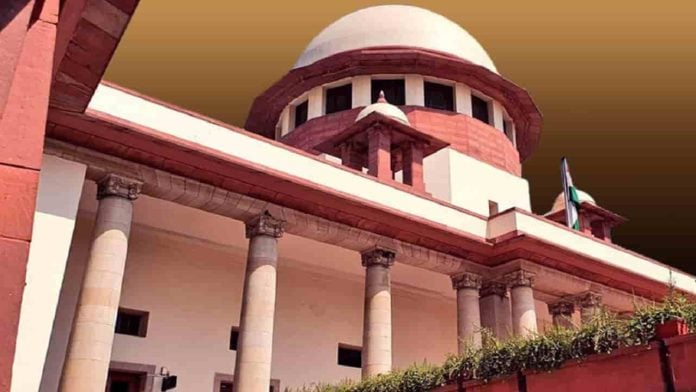A Congress leader has filed a petition in the Supreme Court seeking immediate implementation of The Constitution (One Hundred and Twenty-eighth Amendment) Bill 2023, also known as the Women’s Reservation Bill, which got Parliament nod and President’s approval in September 2023, before the Parliamentary General Election in 2024.
The Constitution (One Hundred and Twenty-eighth Amendment) Bill 2023, also known as the Nari Shakti Vandan Adhiniyam, got the Parliament seal on September 21 after the Rajya Sabha passed it unanimously.
The constitutional amendment was passed on the fourth day of the special Parliament Session, with all 214 Rajya Sabha members voting in its favour and no one opposing it. There were no abstentions in the Upper House on September 21.
On September 20, the Lok Sabha had passed by 454 votes the Bill, which would provide 33 percent reservation for women in the lower house, Legislative Assemblies of States and the Legislative Assembly of the National Capital Territory of Delhi.
As per the proposal, the Nari Shakti Vandan Adhiniyam will take effect after the delimitation exercise following the first census after the Bill becomes a law. The reservation for women will come to an end after 15 years from the date of its commencement.
Filed by Congress leader Dr. Jaya Thakur, the petition sought to declare this clog – “after the delimitation is undertaken for this purposes after the relevant figures for the first census” as “void-ab initio” and immediate implementation of the Bill.
The petition contended that in a democratic process, all corners of the society’s representation was required, but from the last 75 years, there has been no adequate representation of women in the Parliament as well as in the State Legislatures.
This has been a long-pending demand from the decades and the Parliament rightly passed the above act for 33 percent reservation but putting the clog that the said act will be implemented ‘after’ the delimitation is undertaken for this purposes after the relevant figures for the first census which may kindly be declared as void-ab-initio, for immediate implementation of the 33 percent women reservation, it added.
The petition further stated that the constitutional amendment must not be withheld for an uncertain period, especially because the bill was passed in a special session specifically called for this purpose and had been unanimously passed by both houses of the parliament.
Earlier in May 2010, the United Progressive Alliance (UPA) government had introduced the Constitution (One Hundred and Eighth Amendment) Bill, 2008 to reserve one-third of all seats for women in the Lok Sabha and the state Legislative Assemblies.
Though the Bill was passed in the Rajya Sabha, it lapsed after the Lok Sabha did not vote for the same.
The 2008 bill proposed amendments to three constitutional provisions – Article 239AA (Special provisions with respect to Delhi), Article 331 (Representation of the Anglo-Indian community in the House of the People) and Article 333 (Representation of the Anglo-Indian community in the Legislative Assemblies of the States).
Additionally, it introduced three new articles, namely Articles 330A, 332A, and 334A.
The first two newly-proposed articles sought to introduce reservation for women in Lok Sabha and the state legislative assemblies, while the last article contained a sunset clause for this affirmative policy to be phased out after a period of 15 years.
A crucial difference between the earlier bill and the constitutional amendment bill that has now been introduced is that it is proposed to be enforced after an exercise of delimitation is undertaken for the purpose following the first census after the enactment of the bill, although the sunset clause has been retained.
Provisions relating to reservation for the Anglo-Indian community have also been left undisturbed, unlike in the previous bill, which sought to amend Articles 331 and 333. Both bills feature provisions for horizontal reservation, cutting across various quota categories.
Specifically, one-third of the seats allocated for the Scheduled Castes and the Scheduled Tribes in the Lok Sabha and Legislative Assemblies are proposed to be designated for women from these communities.
(Case Title: Dr. Jaya Thakur V Union of India)


